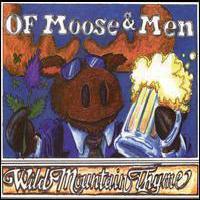
For many people, smaller is better when it comes to innovation in spirit-making.
The boutique liquor business is catching on all across the nation. The latest clear spirit is being distilled up in Maine, and the American version of Europe's eau de vie brandies is gobbling up all sorts of homegrown fresh fruits in many states.
While the giant spirits conglomerates and distributors such as Allied Domecq, Diageo and Brown Forman battle each other for the lion's share of the market, the less obtrusive mammals are carving out successful little niches of their own.
For the past five years, a Long Island company has been using local potatoes and Midwest grain to create Peconika vodka. Up in Minnesota, Shakers Original American Vodka, a grain alcohol produced in the town of Benson since the beginning of the year, already is the best-selling vodka in the state.
Not that the niche operators are restricting themselves to hard liquor. In various parts of the nation, lighter alcoholic beverages are being produced. Two quick examples:
In Jacksonville, Vt., the North River Winery operation makes 11 different fruit wines, many of them certified organic. The operation has grown from a mere 2,500 gallons a year in 1985 to 20,000 gallons today. In Richmond, Mass., not far from the historic Hancock Shaker Village tourist attraction, John Vittori is putting out his own line of wines made from grapes trucked up from Long Island, NY, as well as a line of sweet and hard ciders from his own apples at the Hilltop Orchards/Furnace Brook Winery operation.
Meanwhile, back on the liquor trail, potato farmer Don Thibodeau is cranking out the spuds on his Green Thumb Farms near Freeport, Maine, to fuel creation of a boutique vodka product due on the market next spring.
Thibodeau's vodka, says the Associated Press, will be produced in small batches from his 525-acre spread and, if need be, from potatoes grown elsewhere in the state. The operation will be Maine's first commercial distillery. White Rock Distilleries in Lewiston makes spirits, but its alcohol is imported.
Thibodeau's product will be aimed at the high-priced "super premium" niche with the likes of Belvedere, Chopin and Grey Goose. A name has been chosen for the new product, but is being kept secret for now.
Grey Moose, anyone?
Beyond vodka, the brandies or brandy-like spirits are on the rise, led by the work of master craftsman Jorg Rupf. He makes Hangar One viognier grape vodka and various fruit brandies in a former aircraft plant in Alameda, Calif.
There are more than 50 such small operations in 16 states using nearly any kind of fruit or organic matter to create vodkas and eau de vie (water of life) brandies -- places such as Westford Hill Distillers in Connecticut, Clear Creek in Oregon and Bonny Doon in California.
The reasons people get into a business that is hard to promote outside one's immediate area are numerous.
Steve McCarthy, for instance, tells the Bloomberg News Service he was inspired by the palate-cleansing bite and enticing fragrance of eaux de vie he'd tasted at business dinners in Europe. So, in 1985, he began distilling fruit from his family's Oregon pear orchard. "The market didn't know eau de vie from eau de toilette," McCarthy told the news service. The market knows it now. He distills 8,000 gallons a year of a dozen aromatic spirits for his Clear Creek line, known particularly for its apple brandy.
California grape grower Ansley Coale met vacationing Hubert Germain-Robin, offspring of a French cognac-making family, and struck up a partnership that has resulted in a pricey, cognac-style brandy made from pinot noir grapes (Germain-Robin Select Barrel XO, $100; Anno Domini, $350).
To Dowd's Spirits Notebook latest entry.
To Dowd's Wine Notebook latest entry.
To Dowd's Brews Notebook latest entry.
Back to Dowd's Bar Blog home page.
No comments:
Post a Comment